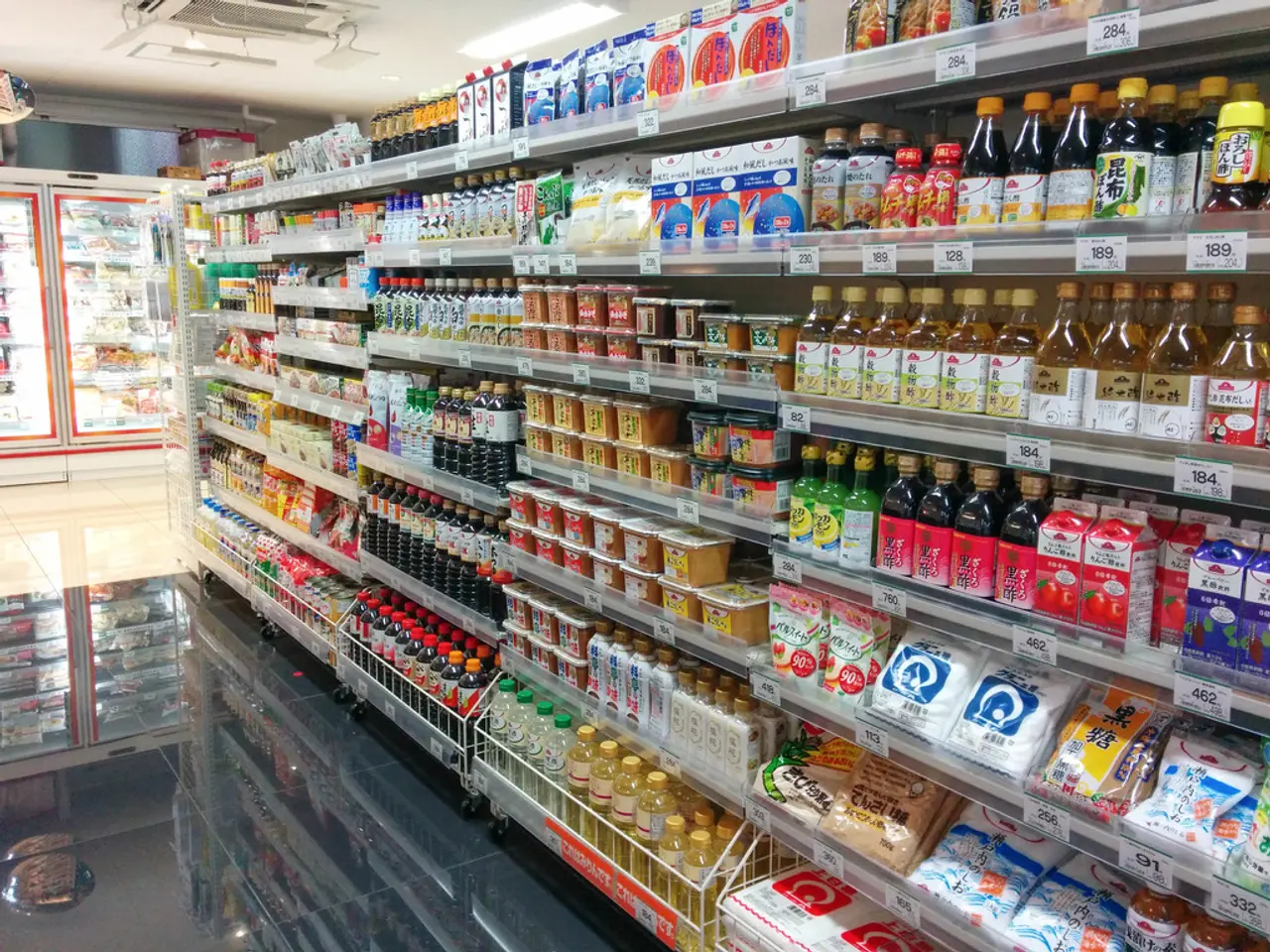Steepest Increase in Inflation Recorded since January 2003 Unveiled
Inflation Surges in Ghana: Unraveling the Causes and Impact
Ghana is grappling with record-breaking inflation rates, with consumer prices rising by a whopping 50.3% in November 2022. That's a sharp jump from the 40.4% recorded the previous month, according to data from the Ghana Statistical Service.
This enormous increase in rate marks the most significant single-month leap since January 2003, when the rate soared by 12 percentage points. Despite market predictions of approximately 44.8 percent inflation levels, Ghana's consumer prices breached the 50 percent threshold, setting a 18th consecutive month of accelerated inflation.
The inflationary surge can be attributed to several factors, including currency volatility, rising import costs, and pre-existing fiscal challenges.
Currency Volatility and Exchange Rate Instability
The Ghanaian Cedi's unstable exchange rate against major currencies, particularly the US dollar, contributed to higher import costs, leading to increased inflation.
Rising Import Costs
Higher global commodity prices, including fuel and food, imposed additional burdens on the economy. The escalating expense of imports further aggravated the inflationary situation.
Fiscal Challenges
Pre-existing fiscal issues, such as high government spending and borrowing, added to inflationary pressures.
External Shocks
Global economic forces, including geopolitical tensions and rising oil prices, increased inflationary risks.
The Bank of Ghana (BoG) aims to tackle the inflation crisis with a multi-pronged strategy, including monetary policy adjustments, foreign exchange interventions, and encouragement for fiscal discipline.
The BoG has maintained a high policy rate of 28% to control credit growth and demand, thereby reducing inflationary pressures. Additionally, the institution has injected foreign currency into the market to stabilize the exchange rate and reduce import costs.
BoG's efforts also include encouraging fiscal prudence, such as reduced government spending and high demand for Treasury Bills, to moderate economic pressure and debt obligations. Furthermore, the implementation of the Goldbod program and reliance on IMF-backed reforms and credit facilities aim to bolster economic stability and lower inflation.
Despite the ongoing measures, market analysts believe inflation will persist for the remainder of the year, driven by factors such as rising domestic petroleum prices, transport fare adjustments, and continued cedi devaluation.
In conclusion, inflation is forecasted to peak in Q1-2023 and then drop to approximately 25% by the end of 2023. Resilience and cooperation from both the public and private sectors will be critical in navigating these inflationary times and fostering a strong and stable Ghanaian economy.
- The Bank of Ghana (BoG) is addressing the inflation crisis through a multi-faceted strategy, including policy adjustments to control credit growth and demand, foreign exchange interventions to stabilize the exchange rate, and encouragement for fiscal discipline.
- One of the factors contributing to Ghana's inflation surge is rising import costs, which have been exacerbated by the Ghanaian Cedi's unstable exchange rate against major currencies and higher global commodity prices, including fuel and food.
- Market analysts predict that inflation will persist for the remainder of the year, driven by factors such as rising domestic petroleum prices, transport fare adjustments, and continued cedi devaluation.
- The BoG has injected foreign currency into the market to reduce import costs and has set a high policy rate of 28% to curb inflation, while also encouraging fiscal prudence measures like reduced government spending and high demand for Treasury Bills to moderate economic pressure and debt obligations.




